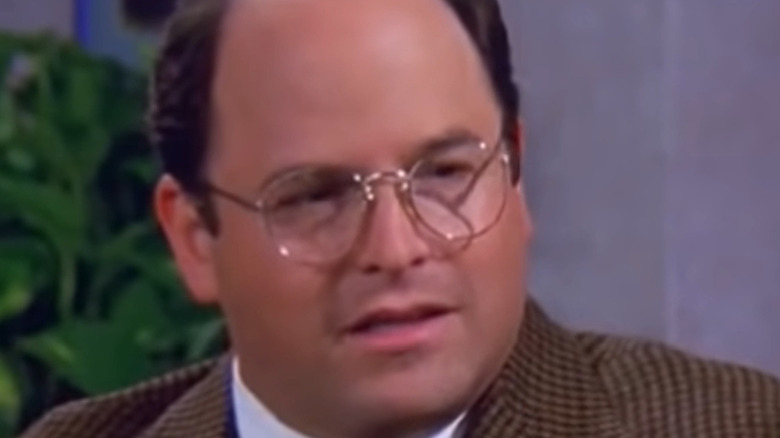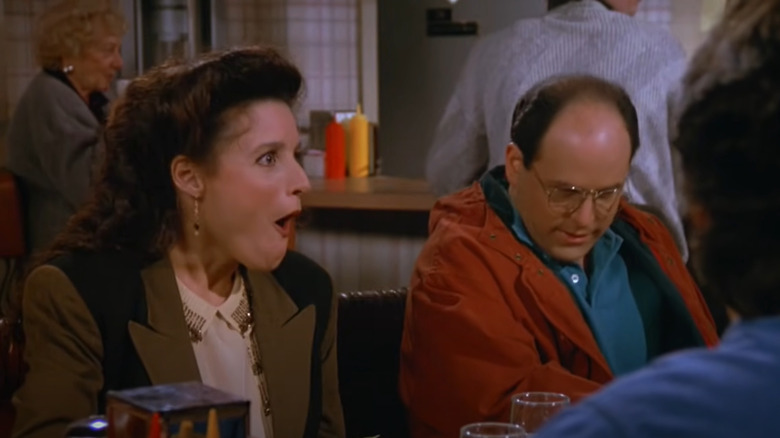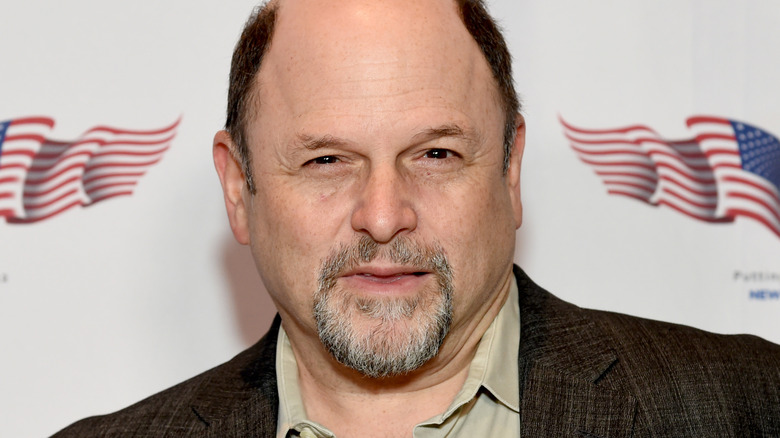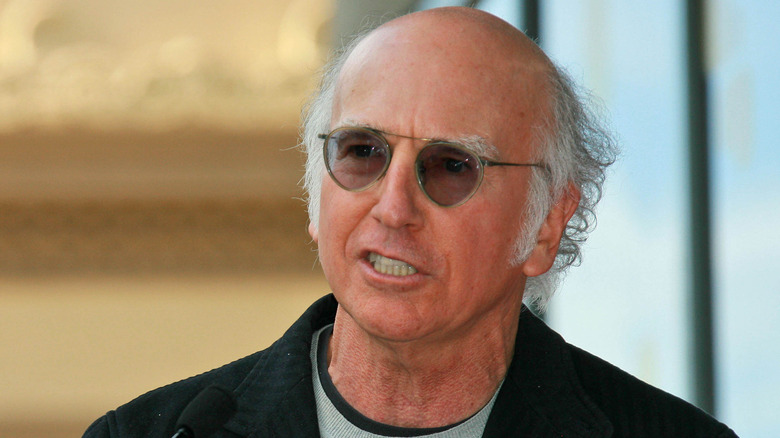The Seinfeld Episode Jason Alexander Thinks Is Responsible For The Show's Success
"Seinfeld" became a pop culture touchstone of the 1990s for a variety of reasons. For one thing, the show about four single friends came out right after the peak of 1980s family-oriented sitcoms like "Growing Pains" and "Diff'rent Strokes." The Guardian pointed out in 2018 how "'Seinfeld' opened the door to bold, inventive comedy with a dark streak." George Costanza (Jason Alexander) and Jerry Seinfeld's cynical, petty approach to social nuances and customs as a fictionalized version of himself would eventually influence even darker television experiments, including "It's Always Sunny in Philadelphia."
The show ended when it was one of the highest-rated in the country, but when it first premiered in 1989, NBC executives weren't sure what they'd just put on air. Why were the characters so unlikeable? Why didn't anyone learn anything at the end? But their gamble eventually paid off. "Seinfeld" was a major Nielsen ratings performer in the last half of the show's run on the network, as noted in Nicholas Nigro's book Seinfeld FAQ: Everything Left to Know About the Show About Nothing.
When asked about why "Seinfeld" became so successful, Jason Alexander actually credited one particular episode with making it a hit.
The Contest won an Emmy and high ratings
Jason Alexander had believed while filming the pilot, titled "The Seinfeld Chronicles," that there was no way the show would be popular. The actor confessed to telling Jerry Seinfeld, "I think the number one show in America at the moment is 'ALF.' If that's the number one show in America, who's going to watch this?" as quoted by Den of Geek. But Alexander credits the cheeky Season 4 episode "The Contest" with turning the show's popularity around and proving him wrong.
"The Contest" centers around a bet between Jerry, George, Elaine Benes (Julia Louis-Dreyfus), and Cosmo Kramer (Michael Richards) over how long they can go without masturbation. The episode unfolds masterfully as each character fails, whether because of John Kennedy Jr. or an exhibitionist neighbor. Kramer is the first to go within mere moments of making the wager. Alexander's own character, George, demonstrates a much higher degree of self-restraint.
George won a contest
The word "masturbate" is never used in the episode, as according to an official making-of video, NBC censors felt it wasn't appropriate, but this arguably made the episode much funnier. Alexander told Larry King in 2014 that the episode aired right when the show's new time slot behind "Cheers" was helping "Seinfeld" in the ratings. "That became national news the next day, and from that moment on, we were sailing sweet," he said. The script, which also helped popularize the expression "master of my domain," even won an Emmy award for the show.
George's victory in the contest-that-will-not-be-named was also an important moment of development for the Larry David character. No fan of "Seinfeld" would describe George as a frequent winner, so his ability to refrain from masturbation is so notable that it even earned a hilarious callback on the Season 5 episode "The Puffy Shirt." In this episode, George is recognized for the stunning aesthetic symmetry of his hands, and quickly earns work as a hand model. The other, more experienced hand models caution George against the dangers of self-love, to which George replies smugly, "I won a contest."
Larry David won a contest IRL
"Seinfeld" creator Larry David actually came by this risqué story honestly. In a 2017 interview with New York Magazine (via Esquire), he discussed the edgy, early episode, and the hilarious IRL inspiration for the plot.
"I can't believe I have to discuss this at my ripe age," David told New York. "I would say there was only one other person involved [in the masturbation contest]. Should I mention his name? I don't even know—my friend Frank Piazza. I don't remember what the bet was. There must have been some money involved. I think it was a small amount. [We only lasted] two days. Maybe three. I just remember it didn't last very long. I was surprised at how quickly it ended. I won handily, yes.
It's commonly understood that George serves as the analogue character for the series' creator, so it makes sense that Mr. Costanza would succeed where Mr. David also excelled.



